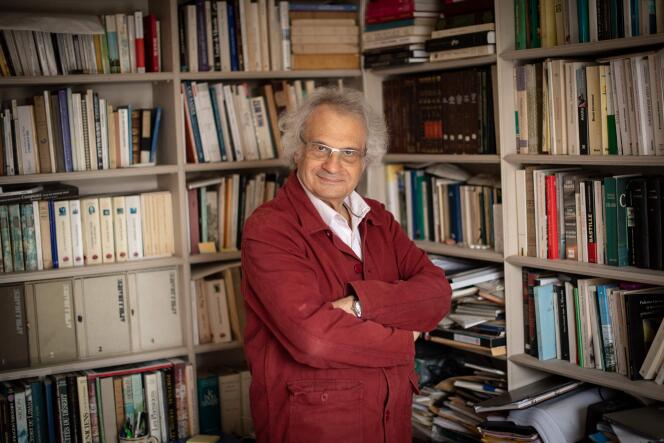


Amin Maalouf was elected perpetual secretary of the Académie Française on Thursday, September 28. He succeeds Hélène Carrère d'Encausse, who passed away on August 5, in this position. Popular with – almost – everyone at the Quai Conti institution and endorsed by "Tsarina" Carrère d'Encausse, the author, doctor and diplomat was the sole candidate until his "friend" Jean-Christophe Rufin declared his candidacy on Monday. But Maalouf remained the clear favorite and easily won the election by 24 votes to 8.
Maalouf's own past and his work make him a man who crosses borders, haunted by the potential misunderstanding that separates the West from the East. Determined to "undermine" and "demolish" what he called, in his acceptance speech to the Académie Française in 2011, the "wall of detestation – between Europeans and Africans, between the West and Islam, between Jews and Arabs," the first Lebanese-French writer to take a seat in the Académie Française established himself, from the publication of his first essay, Les Croisades vues par les Arabes (The Crusades Through Arab Eyes, 1983), as a writer capable of building bridges between cultures and loyalties. He particularly dislikes "identity-based tensions" and communitarianism.
And with good reason. Born in Lebanon in 1949 to a Catholic mother from the Melkite Greek minority and a Protestant father, the grandson of a Turkish woman married to an Egyptian Maronite, Maalouf was raised in Arabic, spoke English at home and attended the French Jesuit school. At 22, he became a journalist like his father, covering the last days of Saigon, the fall of the Ethiopian monarchy and the Iranian revolution. Fascinated by "the way of the world," he nevertheless preferred the position of observer to that of a man of action. Unwilling to live in a country at war, or to take an active part in defending one side or the other, he moved to France in 1976 after the civil war broke out "under [his] windows" in Beirut in 1975.
While he initially pursued his journalistic activities in Paris, becoming editor-in-chief of the weekly news magazine Jeune Afrique, the success of his first book encouraged him to devote himself to writing. His novel Léon l'Africain (Leo Africanus, 1986) became a bestseller. His well-documented historical novels are written in an elegant, fluid style. His talent as a storyteller makes the history of an East that is both legendary and highly topical accessible to a wide audience.
In Samarcande (Samarkand, 1988) again, and in Le Jardin des Lumières (The Gardens of Light, 1991), he recounts the Orient of yesteryear, in which he finds material to put today's Middle East into perspective. A best-selling author, he was awarded the Goncourt Prize in 1993 for Le Rocher de Tanios (The Rock of Tanios), a work of pure fiction where history meets myth. Maalouf manages to avoid the pitfalls of literary orientalism. Drawing on the lessons of Persian poet Omar Kayyam, he invents light-hearted texts in which the proliferation of events is not accompanied by excessive picturesqueness.
You have 35.82% of this article left to read. The rest is for subscribers only.
